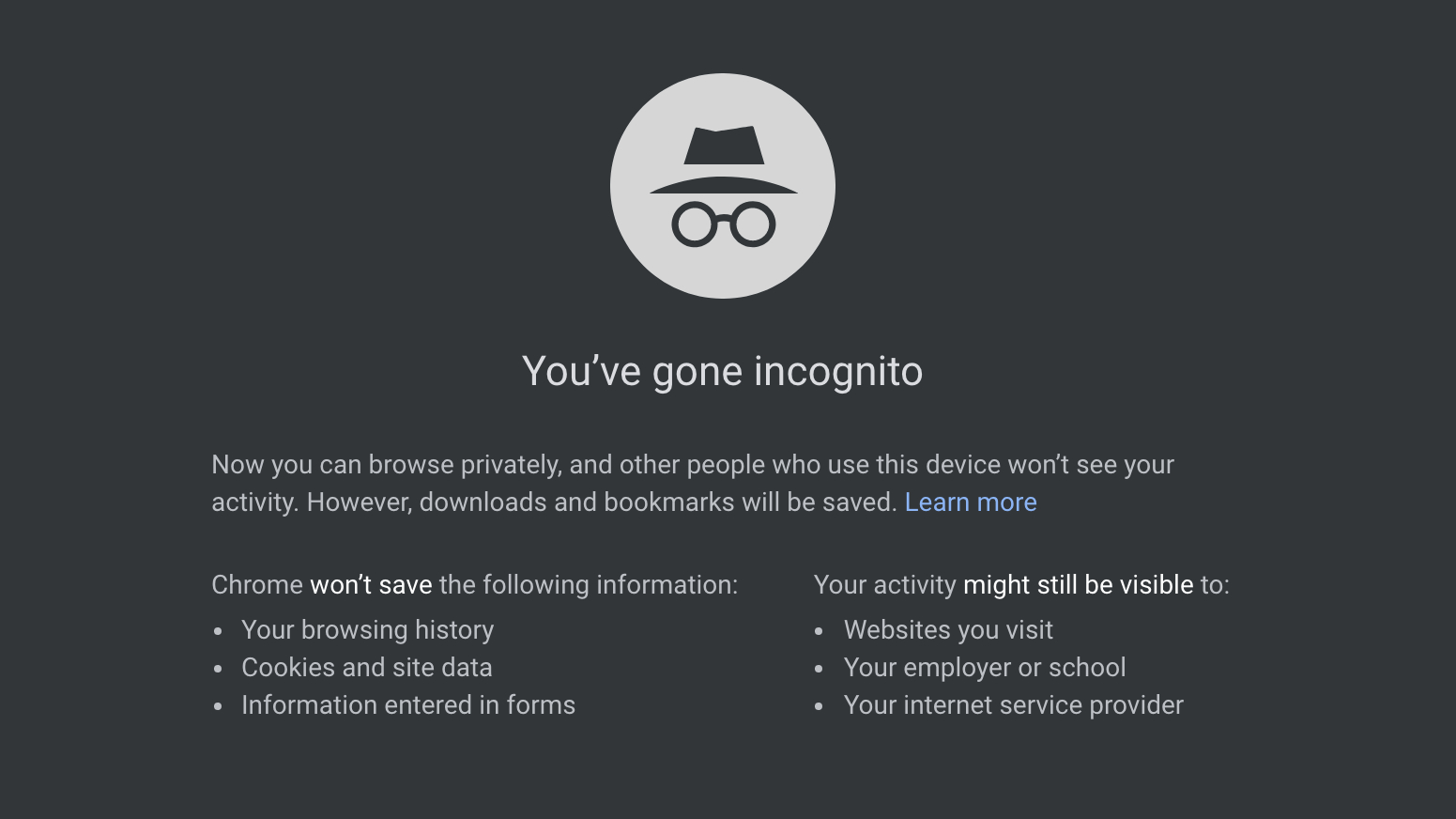Chromium-based Edge (and Chrome) may get a better Incognito Mode on Windows 10
Keyboard input monitoring will (potentially) be a thing of the past

You’re likely aware that Chrome has an Incognito Mode, and Microsoft is seemingly planning to improve the level of privacy this gives web surfers in its fresh Chromium-powered take on the Edge browser. These improvements could also find their way into other Chromium-based browsers, which includes Chrome itself – on Windows 10.
While Incognito Mode gives your web browsing a much higher level of privacy than normal – as your browsing history, cookies or other website data, and details entered into forms won’t be stored – it definitely has limitations.
Remember that it won’t conceal your browsing activity from the sites you visit, or indeed your ISP, like a VPN will. Also, the mode continues to monitor what you type on the keyboard – this is done to facilitate text suggestions and the like, but is obviously a potential point of privacy failure.
- Chromium-based Edge should support 4K Netflix streaming
- These are the best VPN extensions for Chrome
- Problems with Google’s browser? Here’s how to fix Chrome
Which is why Microsoft has put forward a Chromium commit – in other words, a suggested change to the Chromium code – to include a feature whereby if Incognito Mode is on, keyboard input is kept private and isn’t monitored (and obviously any text prediction capabilities won’t be operational, either).
In fact, as Windows Latest noticed, Microsoft has flagged this as a bug, commenting: “On Windows 10, we should use IS_PRIVATE input scope if user is in ‘incognito’ or ‘guest’ mode because we don’t want input service to provide text intelligence for private data.”
As mentioned, this would be for any Chromium-based browser in Windows 10, not just the new spin on Edge.
Making amends?
As you may recall, Microsoft has suffered from a pretty controversial history when it comes to privacy with Windows 10, but of late, the company seems to be trying to make amends. And this move pushes forward a little more along those lines, while giving the revamped Edge some kudos points, to boot.
Get daily insight, inspiration and deals in your inbox
Sign up for breaking news, reviews, opinion, top tech deals, and more.
Before we get too carried away, though, remember that this capability is still in the very early stages of development, and not actually even in preview yet. There’s always the possibility the suggestion won’t go anywhere, and could be scrapped before it even reaches testing.
Fingers crossed that won’t be the case, because it would obviously be nice for more privacy-conscious folks to have the choice to drop keystroke monitoring if they’re not bothered about text auto-suggestions in their incognito browsing.
As we’ve discussed before, if you really want anonymous and private browsing, your best bet is a VPN, though – and even in this case, there can be pitfalls (such as question marks over exactly how a free VPN service could cost you in other respects, even if it doesn’t have any impact on your wallet).
- Surf the web on one of our best laptops of 2019
Darren is a freelancer writing news and features for TechRadar (and occasionally T3) across a broad range of computing topics including CPUs, GPUs, various other hardware, VPNs, antivirus and more. He has written about tech for the best part of three decades, and writes books in his spare time (his debut novel - 'I Know What You Did Last Supper' - was published by Hachette UK in 2013).